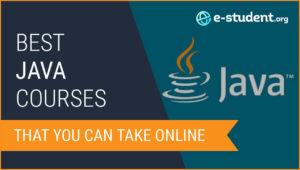
The Habit of Ferocity Review: Is the Course Really Worth It?
In this review of The Habit of Ferocity by Steven Kotler, I’ll go through my personal experiences as a student and graduate of the program.
As businesses shift to the cloud, is the "Preparing for Google Cloud Certification: Cloud Developer Professional Certificate" the golden ticket for those wanting to join the journey?
E-student.org is supported by our community of learners. When you visit links on our site, we may earn an affiliate commission.
4.7 / 5
Diving into the world of Google Cloud? The "Preparing for Google Cloud Certification: Cloud Developer Professional Certificate" might just be your roadmap. Set at an intermediate level, this 2-month journey takes you through the nooks and crannies of cloud development on the Google Cloud Platform (GCP) and prepares you to sit for the Cloud Developer certification exam. From deployment tricks to security tips, it's all in there. While it claims "no previous experience necessary," it's best if you have some familiarity with the Google Cloud Platform, command line tools, Linux, and Node.js. Overall, this is a very well-designed course for anyone interested in pursuing Google Cloud certification.
The “Preparing for Google Cloud Certification: Cloud Developer” Professional Certificate on Coursera is an educational offering in collaboration with Google Cloud. Google Professional Cloud Developer is an intermediate-level certification directly from Google meant for software and application developers. It is designed as a preparatory pathway for the official Google Cloud Developer certification exam, an industry-recognized credential that validates one’s expertise in using Google Cloud technologies. This certification is an assessment of an individual’s capabilities in cloud development on their platform, while the Coursera course provides the foundational knowledge and hands-on experience needed to tackle the exam confidently.
The Coursera course, through its six-course series, covers a wide array of topics from cloud fundamentals to application development on Google Cloud. While the course claims “no previous experience necessary,” given the comprehensive nature of the topics, the depth of topics suggests that some background in tech would be beneficial and enhance the learning experience. For those keen on establishing a foothold in the cloud domain, especially within the Google Cloud environment, pursuing this certificate could be a strategic move to validate one’s skills and stand out in the tech industry.
Important to note from the outset is that the program will award you a professional certificate upon completion. While the program should prepare you for it, it is, however, not the same as the Google Cloud certification, which you will need to pay an additional assessment fee and successfully complete the exam to achieve.

The Google Cloud Developer course is labeled as an intermediate-level professional certificate, contradicting the ‘no previous experience necessary’ claim. A background in (or at least familiarity with) cloud computing and programming languages like Python or Java would be advantageous. In fact, Google, on their end, recommends “3+ years of hands-on experience with Google Cloud products and solutions” before attempting the certification assessment.
The course covers a variety of topics and is somewhat exhaustive, covering everything from Google Cloud Fundamentals to more advanced topics like Kubernetes and Application Development. The program can at times feel a bit like a shotgun approach to teaching cloud computing, covering a lot of ground but not always going into great depth. This could be overwhelming, in particular, for someone who is new to the field.
The production value is high, as you’d expect from a Google-affiliated course. However, the course sometimes feels more like a tutorial for Google Cloud services than a neutral educational experience. This, however, is understandable as it is a preparatory program specifically for Google Cloud certification.
Finally, the hands-on labs are a strong point. They offer practical experience, which is invaluable when you’re learning something as complex as cloud computing. However, these labs are tightly coupled with Google’s ecosystem, which might not offer a broad perspective on cloud development.
The course is offered by Google Cloud Training experts, ensuring high-quality instruction and up-to-date content. It lends it credibility but can also, at times, make it feel a bit like an extended sales pitch for Google Cloud services.
While the “Preparing for Google Cloud Certification: Cloud Developer Professional Certificate” offers a comprehensive dive into the Google Cloud Platform, it’s always wise to explore other avenues to enrich your cloud knowledge.
If your focus is more on maintenance than development, you should likely be pursuing the Google Cloud Engineer certification instead. Coursera has a Professional Certificate program preparing for this certification as well.
There are, of course, other cloud platforms. For those leaning towards Amazon’s ecosystem, the AWS Cloud Solutions Architect Professional Certificate is a solid introduction to Amazon Web Services. If you’re looking to diversify your cloud expertise, Coursera’s Development and Operation on Alibaba Cloud Specialization offers insights into Alibaba’s cloud offerings. Another – shorter – alternative is the Tencent Cloud Developer Associate course on Coursera.
For a broader software development perspective, I would suggest the IBM Full Stack Software Developer Professional Certificate program on Coursera covers cloud computing within a larger full-stack curriculum.
For an in-depth and targeted experience for Google Cloud, you can also consider exploring the Ultimate Google Certified Associate Cloud Engineer course available on Udemy, which stands out among the offerings on the platform for its thoroughness, even if the production quality is at bit lower level.
However, if I were to recommend one course that stands out in terms of depth, hands-on experience, and alignment with industry needs, it would undoubtedly be the “Preparing for Google Cloud Certification: Cloud Developer” Professional Certificate. Its holistic approach to cloud development on GCP makes it a top pick for those serious about mastering cloud technologies.
The Preparing for Google Cloud Certification: Cloud Developer Professional Certificate program on Coursera requires the completion of 6 courses and a capstone project, taking around 2 months at a study pace of 5 hours per week. The course is somewhat pricey, especially considering that it’s essentially preparing you for a Google certification. If you’re invested in a career in Google Cloud, it might be worth it, but it’s a significant financial commitment.
This Professional Certificate is included in the Coursera Plus subscription, which costs $59 per month and gives you access to the majority of Coursera courses (but not, for example, the IBM Data Engineering professional certificate). With the recommended 2-month completion time, this adds up to $118.
If someone is looking to save money, the program can be finished in less than the recommended time of two months since it’s self-paced. As for most Coursera courses, it is also possible to audit the individual courses of the Professional Certificate for free. Coursera also provides a 7-day free trial as well, which allows a review of the course material before committing to a paid plan.
While the program isn’t free (unless you audit the courses), the cost covers access to the course materials and projects, culminating in a certificate of completion and hopefully being ready to sit for the Google Cloud Developer certification. All of these things together give good value for what’s paid, especially if someone is serious about becoming a skilled Google Cloud developer.
The course is structured to provide a comprehensive understanding of Google Cloud Platform (GCP), focusing on the skills required to become a certified Cloud Developer. The syllabus is well-designed, covering a broad range of topics that are highly relevant to the target audience.
The course is divided into modules, each focusing on a specific aspect of cloud computing or GCP. It covers both the basics and advanced topics, making it suitable for learners with varying levels of starting expertise (although see the above note about it being less suitable for beginners).
The course is well-produced, with high-quality videos, slides, and other instructional materials. The instructors are knowledgeable and articulate, making complex topics easy to understand. One of the standout features of this course is the hands-on exercises. These exercises allow you to apply what you’ve learned in a practical setting, reinforcing your understanding of the material.
It is recommended to take the courses in the listed order to build on concepts taught in previous courses. Let’s discuss each course individually to explore its features and learning outcomes.

The first course in the Google Cloud Developer Professional Certificate series is “Google Cloud Fundamentals: Core Infrastructure.” This course is designed to lay the groundwork for understanding Google Cloud Platform (GCP). It’s divided into 10 modules, each focusing on different aspects of GCP, from an introductory overview to more specific topics like Google Compute Engine, storage options, and application deployment environments. Each module typically includes a series of videos and a quiz to test your understanding.
The course claims to be beginner-friendly, but the range of topics covered suggests that having some prior knowledge in cloud computing or web development would be beneficial. The course does a good job of introducing various GCP services and deployment options, but it’s worth noting that the focus is very much on Google’s offerings, which may not give you a rounded view of cloud computing as a whole. The quizzes and hands-on labs are valuable for practical learning, but they are tightly integrated with Google’s ecosystem.

The course covers a wide array of skills, from cloud computing and web development to more specialized topics like distributed computing architecture and operations management. However, the course sometimes feels like an extended tutorial on how to use Google Cloud services rather than a comprehensive education in cloud computing. The course is rich in content but could benefit from a more balanced perspective that includes not just how to use Google Cloud services but when and why to use them over other options.
The second course in the series, “Getting Started with Google Kubernetes Engine,” is an intermediate-level course that dives into the world of Kubernetes and its implementation on Google Cloud. The course is structured into five modules, starting with an introduction to Google Cloud and Kubernetes, followed by more specific topics like container management, Kubernetes architecture, and workload management.
The course aims to provide a comprehensive understanding of Kubernetes, a container orchestration platform, and how it integrates with Google Cloud. The modules are rich in content, featuring a mix of videos, readings, and quizzes. For instance, the third module focuses on software containers, their benefits, and how Kubernetes provides container management solutions. It includes nine videos and five quizzes to test your understanding. Similarly, the last module delves into Kubernetes workloads and teaches you about the ‘kubectl’ command and Kubernetes storage abstractions, backed by 11 videos, 3 readings, and 6 quizzes.

While the course is well-structured and offers a deep dive into Kubernetes, it’s worth noting that it leans heavily towards Google’s Kubernetes Engine (GKE). This could be a limitation if you’re looking for a more vendor-neutral understanding of Kubernetes. Also, the course claims to be of an intermediate level but doesn’t specify any prerequisites, which could be confusing for absolute beginners. Overall, the course is beneficial if you’re looking to understand Kubernetes in the context of Google Cloud, but it might not offer a rounded perspective if you’re looking for a more generalized understanding of Kubernetes.
Diving into this course felt like embarking on a journey through the vast landscape of Google Cloud and application development. The course, segmented into seven modules, starts by familiarizing you with the Google Cloud Platform and its core services, from App Engine to Firestore. As you progress, you’re introduced to the nitty-gritty of application development, from storage options to the App Engine. The hands-on labs? They’re like the practical workshops you always wished for, allowing you to play around and get a feel of the Google Cloud services. The labs, powered by Qwiklabs, offer a practical touch, allowing learners to apply theoretical knowledge.
While the course is comprehensive and claims no prerequisites, it might feel a tad bit overwhelming for absolute beginners. A little background in cloud concepts could be a lifesaver. One potential drawback might be its pace, which might feel a bit rushed for absolute beginners. And while it does a stellar job explaining deployment environments, I found myself yearning for more real-world application scenarios.

Security – the word itself is enough to pique interest. It is paramount in today’s digital age, and this course doesn’t skimp on it. This fourth course – Securing and Integrating Components of your Application, spread across six modules, is like a guidebook to fortifying your applications on Google Cloud. It digs deep into ensuring applications are not just functional but also secure.
From understanding the intricate security model of Google Cloud to piecing together various components, it is a roller-coaster of information. The modules are well-structured, starting with an understanding of Google Cloud’s IAM and then moving on to more intricate topics like API management. The hands-on labs are the real MVPs here, offering a sandbox environment to test our security measures. However, I did feel the course could be enriched with more real-world examples. It’s beginner-friendly, but a sprinkle of cloud security basics might just be the secret sauce you need. For those looking to integrate and secure applications on Google Cloud, this is a solid starting point.

Imagine being handed a toolkit – this course is just that, but for deploying applications on Google Cloud. The App Deployment, Debugging, and Performance course is a deep dive into the nitty-gritty of app deployment on Google Cloud and introduces students to its six modules.

You will be comprehensively introduced to deployment models, debugging tools, and the art of ensuring your application runs smoothly. The hands-on labs felt like a playground, offering a space to deploy, break, fix, and learn. However, the course might feel a tad overwhelming for those new to debugging. A basic understanding of app deployment can be a boon. While the course does a commendable job laying down the basics, I couldn’t help but wish for some advanced deployment scenarios to challenge the geek in me. Overall, it’s a robust course for those keen on mastering the art of deployment on Google Cloud.
Cloud Run – sounds intriguing, doesn’t it? It is revolutionizing the way we perceive application development, and this course is a testament to that. The last course in the Google Cloud Developer Professional Certificate, Application Development with Cloud Run, is your gateway to understanding this fully managed computed platform on Google Cloud.
It consists of well-structured five modules, starting with the basics and gradually moving on to more advanced topics. In its five modules, you’re taken on a whirlwind tour of containerized applications and their deployment using Cloud Run. The hands-on labs are similar to practical demos, letting you experiment with Cloud Run and offering a chance to get your hands dirty with real-world scenarios.
However, for those well-acquainted with containers, the course might feel like it’s skimming the surface. Conversely, the course could benefit from more community-driven content; perhaps insights from those who’ve extensively used Cloud Run and a deeper dive into its capabilities would have been the cherry on top. For those looking to harness the power of Cloud Run, this course is a valuable resource.

In conclusion, while each course has its unique strengths and potential areas of improvement, they collectively offer a holistic view of application development and deployment on Google Cloud. Whether you’re a novice or a seasoned developer, there’s something to learn and apply from these courses.
Feedback from learners across various platforms, including Coursera, predominantly highlights the course’s depth, knowledgeable instructors, and the real-world relevance of its content; they don’t offer much in the way of criticism. Most reviews lean towards the positive, with few offering substantial critiques.
Yet, discussions on platforms like Reddit present a different angle. Some participants feel the course leans heavily towards promoting Google Cloud and feels like a ‘Google Cloud advertisement.’ It might not offer a balanced view and potentially overshadow a more neutral or holistic perspective on cloud development. It’s a reminder that while many find value in the course, perspectives on its content and delivery can vary.
The “Preparing for Google Cloud Certification: Cloud Developer Professional Certificate” is a highly recommended course for anyone serious about gaining a deep understanding of Google Cloud Platform and preparing for the Cloud Developer certification. The course offers a comprehensive syllabus, expert instruction, and valuable hands-on exercises. However, it is best suited for those with some prior experience in cloud computing and programming.
The “Preparing for Google Cloud Certification: Cloud Developer Professional Certificate” is a mixed bag. On one hand, it offers a comprehensive look into the Google Cloud Platform with high-quality materials and hands-on labs. On the other hand, it’s expensive and feels a bit like an extended tutorial for Google services. If you’re already invested in the Google ecosystem and are looking to get certified, this course could be beneficial. However, if you’re looking for a balanced, vendor-neutral education in cloud computing, you might want to look elsewhere.


In this review of The Habit of Ferocity by Steven Kotler, I’ll go through my personal experiences as a student and graduate of the program.

Start a career in Java or develop your skills further with the best Java courses online.

In our honest review of At Your Pace Online, we’ll take a look at the courses this education company offers as well as potential reasons you might want to opt for (or avoid) them.